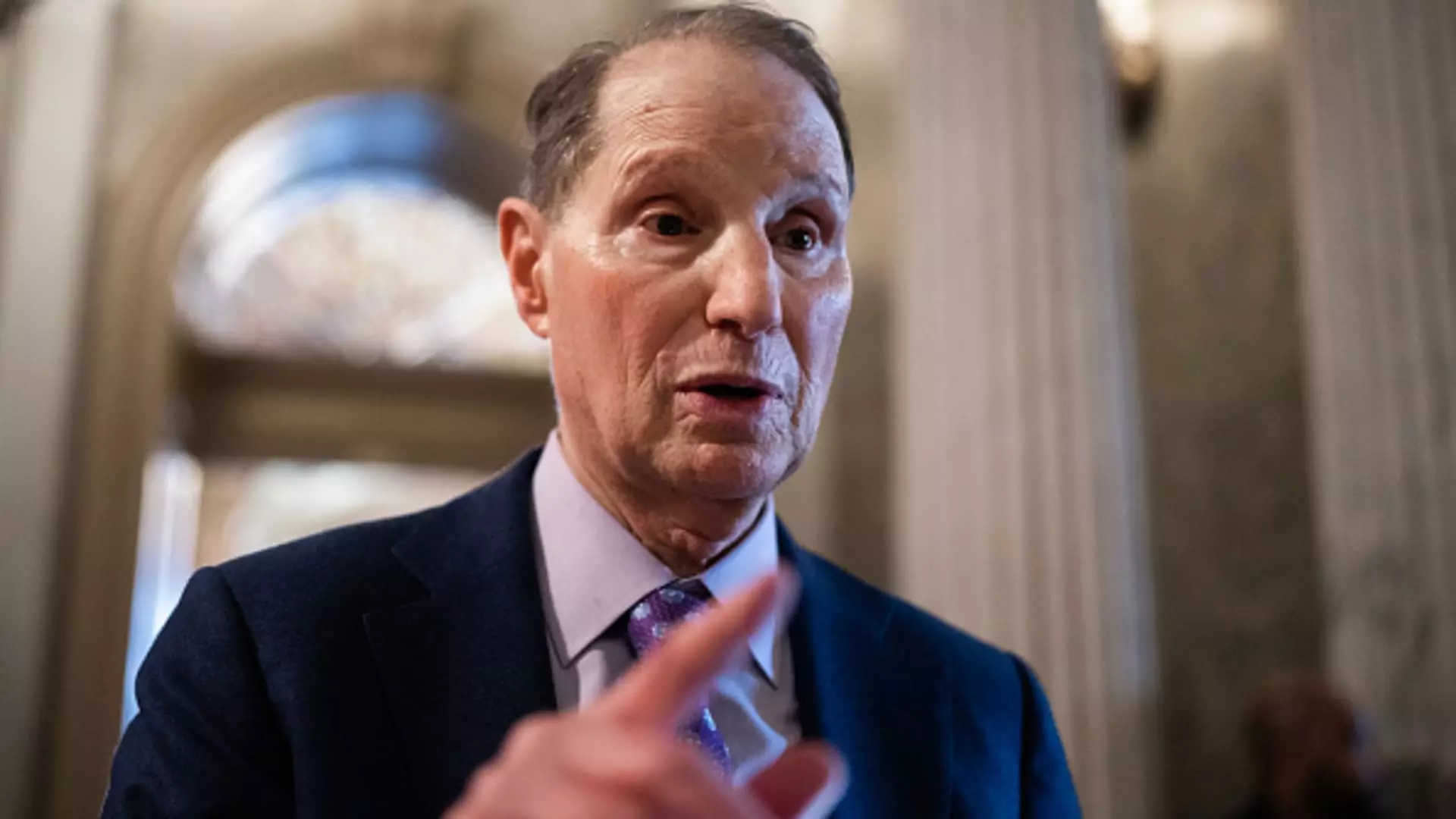Recent developments have thrown the Medicaid system into disarray, with a sudden shutdown of reimbursement portals across all 50 states. This unprecedented event follows an abrupt funding freeze mandated by the Trump administration affecting federal grants and loans. The implications of this shutdown are profound, impacting healthcare providers and millions of Americans who rely on Medicaid for their health coverage. The crisis has ignited widespread concern among legislators and citizens alike, highlighting both the fragility of the healthcare system and the dire consequences of political decisions on public welfare.
Senator Ron Wyden from Oregon raised alarm over the complete halt of Medicaid reimbursement portals, emphasizing the systemic failures created by federal policy changes. Meanwhile, Senator Chris Murphy from Connecticut highlighted the immediate consequences, tweeting about his state’s payment system being “turned off.” The urgency in Murphy’s words captures the frustration felt by healthcare providers who depend on timely reimbursements to sustain their operations. The political context surrounding this situation reveals a disconnect between policymakers and the realities faced by health services, amplifying existing tensions regarding healthcare funding.
The catalyst for this disruption can be traced back to a memo issued by Matthew Vaeth, the acting director of the Office of Management and Budget (OMB). The memo called for a “Temporary Pause of Agency Grant, Loan, and Other Financial Assistance Programs,” implying a comprehensive reassessment of federal financial assistance that aligns with the Trump administration’s policies. This pause does not just freeze funding; it leads to a paralysis in critical health services, as healthcare providers find themselves unable to process payments or continue delivering essential care.
Reactions from Lawmakers and the Administration
The White House attempted to downplay the significance of the OMB memo when spokesperson Karoline Leavitt remarked, “I’ll check back on that and get back to you,” in response to questions regarding the impact on Medicaid payments. This response drew widespread criticism from healthcare advocates and politicians, particularly from Murphy, who expressed outrage at the notion of uncertainty affecting the livelihoods of 72 million Americans. The tone of these exchanges illustrates not only a lack of urgency from the administration but also a growing frustration among lawmakers concerned for the well-being of their constituents.
As the shutdown of Medicaid reimbursement portals persists, the need for immediate action becomes increasingly clear. With millions of Americans relying on Medicaid for healthcare services, the consequences of federal indecision are dire. Both the Biden administration and Congress must urgently address this crisis, facilitating the restoration of Medicaid payments and ensuring that healthcare systems can continue to provide for those in need. The situation underscores an important lesson about the intersection of politics and public health—decisions at the top can have immediate and far-reaching consequences on people’s lives, making it imperative that policymakers prioritize the needs of their constituents above bureaucratic politics.


Leave a Reply